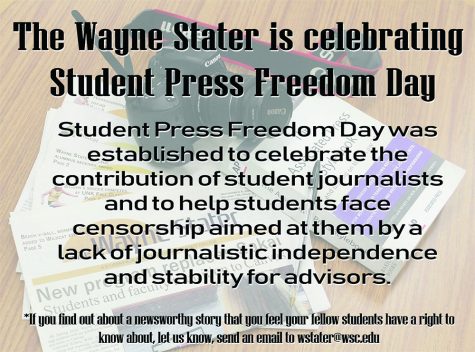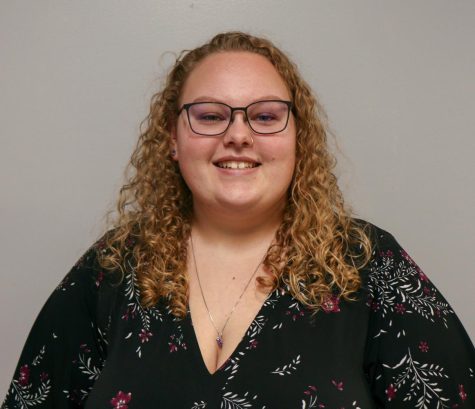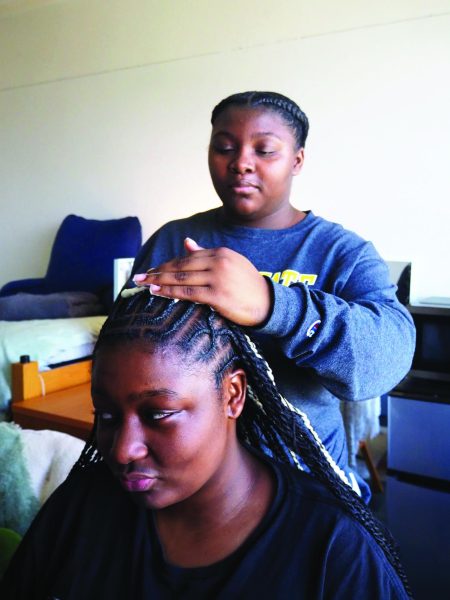Students celebrate freedom of the press
January 22, 2020
Student Press Freedom Day is celebrated Jan. 29 in reaction to the 1988 Hazelwood School District vs. Kuhlmeier Supreme Court decision.
This is a national day to celebrate the contribution of student journalists and support their independence without censorship or threat to their advisors. This year’s theme is “This is What Student Press Freedom Looks Like.” Many student journalists have self-censored, for the fear of backlash from of image-conscious administrators and also have not reported on controversial topics because of previous censorship.
The principal of Hazelwood East High School, located outside of St. Louis, Missouri, made the decision to censor the student-run newspaper. The principal censored a teen issue section about teen pregnancy and an article about the impact of divorce on students. After hearing about that decision, the staff members of the student newspaper sued.
The U.S. District Court for the Eastern District of Missouri ruled the students’ First Amendment rights were not violated. The court case then went on to the Eighth Circuit Court of Appeals where the ruling reversed the District Court’s decision. After the Court of Appeals, the case went on to the Supreme Court. The Supreme Court reversed the Court of Appeals decision on Jan. 13, 1988.
The ruling read that a high school sponsored newspaper, “produced as part of a class and without a “policy or practice” establishing it as a public forum for student expression could be censored where school officials demonstrated a reasonable educational justification and where their censorship was viewpoint neutral.”
Dr. Michael Marek, professor of mass communications and former journalist, said the evolution of student press freedoms has changed dramatically. “Decades ago, students in public schools and college, even, did not have the same rights we have today,” Marek said.
He said student journalists have to be aware of what they are reporting and not infringe on personal rights and fairly report on “what is right, what is appropriate.” For example, Marek said, hypothetically an institution has the right to tell the story of an abuse charge against a staff member. The student journalist has the right to investigate the claims but the institution has the right to say nothing about the matter. Since the hypothetical student works for the student newspaper, as part of a class curriculum, the institution cannot censor the controversial story. “In the old days, the school would just censor it,” Marek said.
“We have had situations over the years, here at Wayne State College, where there was controversy but it was related to personnel matters, and the college can’t comment on personnel matters, they get in legal trouble for that,” Marek said. He said the institution may not be censoring material but may just not legally be able to comment on the matter. “It’s not a question of freedom of the press, it’s a question of human resources policy.”
Today, in response to the 1988 court case, and many more like it, New Voices, a student-powered nonpartisan grassroots movement flourishes. New Voices seeks to protect student press freedoms with state laws. Students need to understand their protected rights and understand they can voice their opinions without the fear of being censored.
“It (understanding First Amendment rights) is important to me, especially because of my major, political science,” Lauren White, a freshman at WSC, said. “Politics is one great way you can change the world. Media and news are raw and blunt because we need to be informed about serious matters. With censorship, we could never get our points across. All humans are uniquely made, and not one person is just alike, and we need equal representation.”In 2020, volunteers for New Voices are active in 16 states and 14 states already have New Voices laws. These states include: Arkansas, California, Colorado, Illinois, Iowa, Kansas, Maryland, Massachusetts, Nevada, North Dakota, Oregon, Rhode Island, Vermont and Washington.
During the 2018 state legislative sessions, Nebraska had active New Voices campaigns. Legislative bill 206 was approved by the judiciary committee in 2019. According to the Nebraska Legislation, LB206 is to “protect free speech rights of student journalists and student media advisers.” Senator Adam Morfeld introduced the bill on Jan. 11, 2019, and has sponsored it through the committees.
According to the Student Press Law Center, “LB206 was approved by the legislature on January 14, 2020, and placed on the ‘special file.’ Two more full chamber votes will need to take place before the legislation is considered passed by the legislature.” In February 2019, 19 students and advocates testified to support the legislation. The legislation unanimously approved the bill and placed it on the General File for debate by the unicameral legislature.
“It is important for American youth to express their beliefs, so consequentially, it is vital for them to understand the rights they have to express themselves to the public,” Ashley Ternus, a freshman at WSC, said.
To find more information about LB206 and New Voices in Nebraska visit nebraskalegislature.gov or splc.org.










